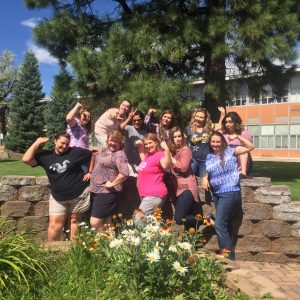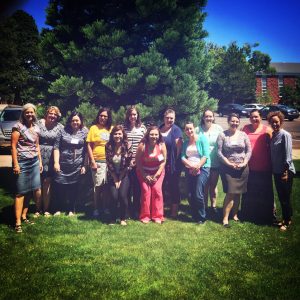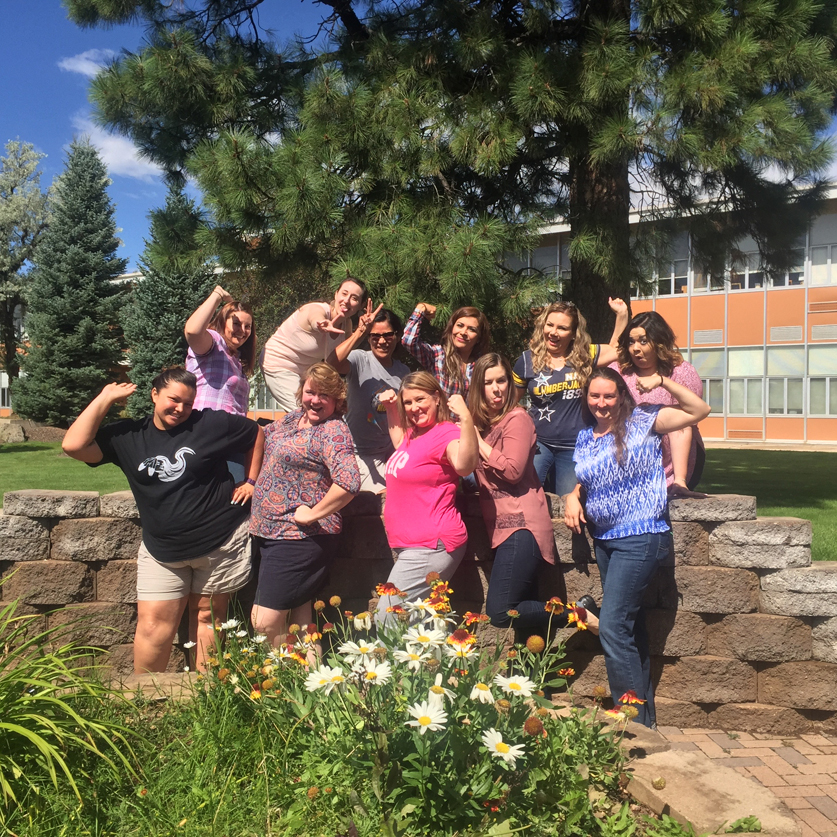Two years ago Jeanette Romo was looking for ways to expand her teaching know-how.

She’d been a kindergarten teacher for years and wanted to get a master’s degree, but wouldn’t get a big enough pay increase to justify the cost and didn’t know how she’d fit the work into her life, which included advocating for her son, who has Down syndrome. She wanted her son to have a normal school experience, and she wanted other children with disabilities to have the same. But she didn’t know how to get there.
A couple of years ago, taking a break from summer, she checked her work email. Scrolling through, she happened across an email touting Northern Arizona University’s Project STRIDE (Strengthening Rural, Inclusive, Diverse, early Educators). She read about the new, grant-funded program, which would pay all the costs for educators throughout the state to earn a master’s degree in early childhood special education.
Romo wasted no time in applying. On Saturday she will walk across the stage as a member of Project STRIDE’s first graduating cohort.
“When I read about the program, it felt like this is what I was waiting for,” she said. “Not only was the program for special education, but for early childhood special education, combining my two passions.”
Project STRIDE is the result of a $1.25 million grant from the federal Office of Special Education Programs, said Jody Bartz, the program co-coordinator and assistant professor of practice in the College of Education. The mission of the program is to put teachers into rural schools who are trained in the best practices for early childhood special education.
“We knew in the state of Arizona—rural, not rural, urban, suburban—there’s a lack of teachers,” she said. “The need gets even greater when you start looking at special education. In rural areas, that need is exacerbated. The children who need the most in those rural areas are not getting what they need.”
The first cohort of 11 STRIDE scholars includes nine teachers and two early interventionists, who work with children between the ages of birth and 3 years old with special needs. They are spread out throughout the state—Sierra Vista, Prescott Valley, San Luis, Gadsden, Page, Yuma, Kingman, Kayenta, White River and Gila River. Students took classes online, with Bartz and professor Karen Applequist, who is the principal investigator on the grant, managing schedules, getting textbooks to them, answering questions and providing feedback on the recorded lessons the students submitted.
They all met face to face occasionally, with an in-person orientation at the beginning and a three-day summer intensive institute in 2016. Applequist and Bartz went on numerous tours of the state to sit in on lessons. They were supportive of the students’ schedules and worked hard to ensure they had the tools needed to succeed, said Rebekah Regnell, a special education teacher for the Gila River Indian Community Early Childhood Special Services and a 2017 graduate of Project STRIDE.
“When we all met up for the halfway point orientation we had all just finished a rough summer of courses, and they presented all of us with half a diploma to help keep us going,” Regnell said. “They really took care of everything by strategically setting up the courses we needed in a way that built from the foundation and framework, then added all the other pieces.”

She was already in special ed and will remain in her position, which allows her to work with students from rural areas who don’t always have the same access to educational resources. Earning her master’s degree has made her a better teacher, and she plans to pay it forward by continuing her work with the Gila River community.
“I think my biggest takeaway was being pushed outside of my comfort zone and being made to think outside the box,” Regnell said. “This has helped me to grow in many ways, and I have noticed the change from when I first began this program to where I am now.”
Romo will remain in a traditional classroom for a couple of years, implementing more inclusive practices. Next year half of her kindergartners will be from the special education preschool and the other half will be regular education students. With her help, they’ll work together to help each other, learn from each other and contribute to a classroom that allows students to learn at their pace and ability level.
“My biggest takeaway from Project STRIDE is that inclusion is not the norm, but it is possible and should be the norm,” Romo said. “Students should be included with their typical peers regardless of disability. There is no reason a student with autism, Down syndrome or any other disability can’t attend and be successful in a regular classroom. The only things that are needed is a willing teacher and some training in how to modify lessons and activities.”
That’s exactly what Bartz wants to see from the graduates of Project STRIDE.
“Young children have every right to be in that classroom, we just need to accommodate and modify,” she said. “There’s no reason why they can’t be in that general education classroom with their peers without disabilities.”



